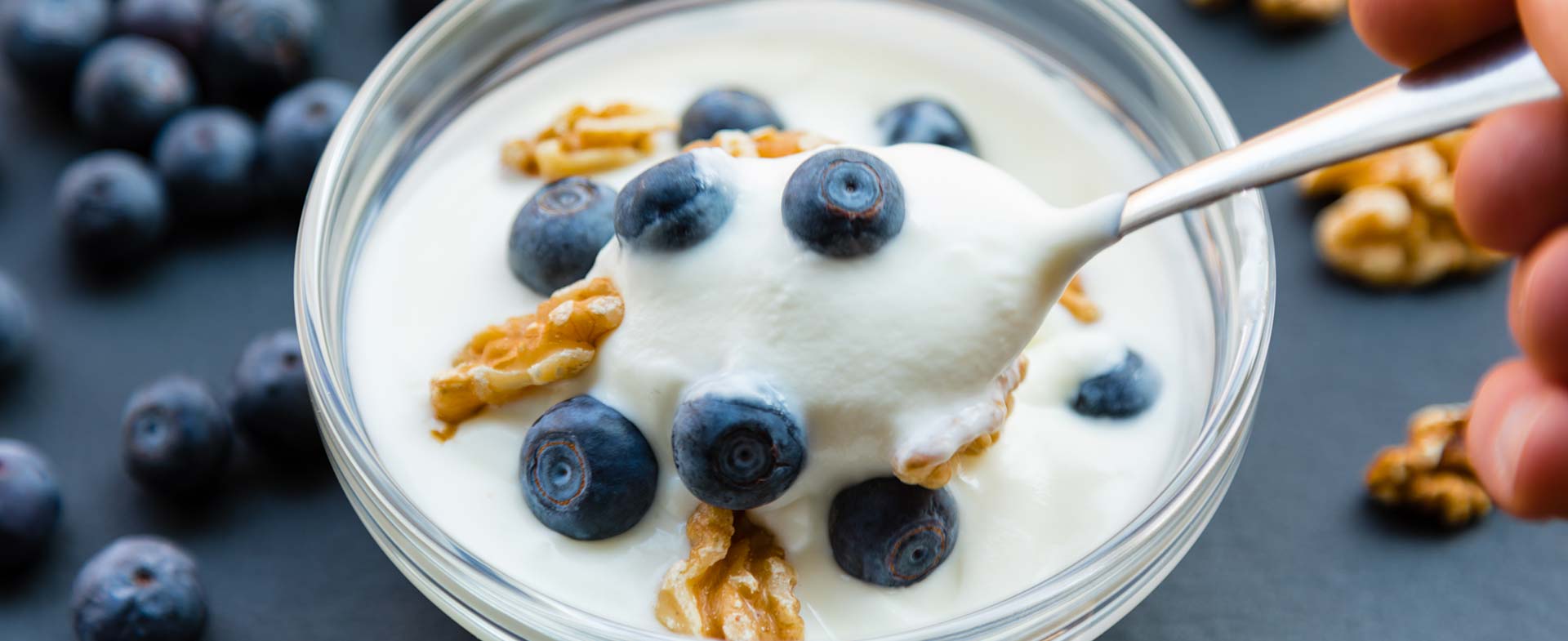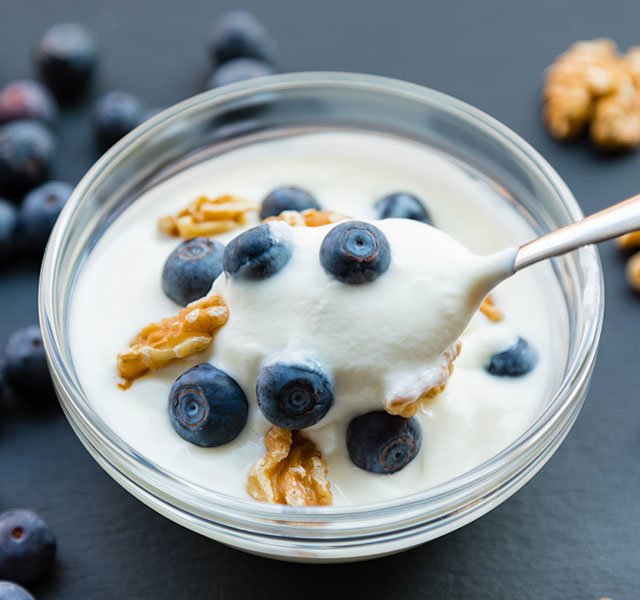If you've shopped the yogurt aisle recently, you may have noticed there are more options than ever before. While flavored and Greek yogurts have been popular for decades, consumers now also have dairy-free yogurts that meet their unique dietary needs.
Whether your go-to is a rich, whole milk Greek variety or a vegan, soy-based brand, there are plenty of health perks to yogurt.
The Health Perks Of Yogurt
A staple in Mediterranean diets for thousands of years, yogurt is nutrient-dense fermented food that boasts calcium, B vitamins, and the same amount of protein and fat as the milk it's made from. It’s also one of few foods that are rich in probiotics (also called live active cultures).
Other perks of the favorite food:
- Studies suggest yogurt may help improve gut health. It promotes a healthy microbiome and may help alleviate symptoms of conditions such as irritable bowel syndrome and diarrhea.
- Some evidence suggests that the probiotics in yogurt can give your immune system a boost and reduce chronic inflammation.
- The natural calcium, potassium and vitamin D (if it's fortified) make it a great food to support bones and teeth.
- Since yogurt is rich in protein, it can also help with weight management, provided you choose low-fat and no- or low-sugar varieties. The mix of protein and carbohydrates keeps you satisfied.
Types Of Yogurt
Like other fermented foods, most yogurt is cultured from cow's milk, though it can also be made from goat's milk. Today, manufacturers even use microorganisms to ferment non-dairy milks like coconut, almond and soy into yogurt.
Here's a look at how the different varieties stack up:
- Greek yogurt is strained to remove the whey (liquid). That step concentrates the protein, which is why Greek yogurt boasts up to twice as much protein than non-Greek varieties (and less sodium and carbohydrates). Greek yogurt also has a richer, creamier taste, and is great as a substitute for mayonnaise and sour cream.
- Traditional yogurt isn't strained, so it has a looser, more liquid consistency than Greek yogurt.
- Vegan yogurt is made from plant-based sources, such as peas, soy, coconut, cashews, oats and almonds. The best options include no added sugar, plenty of protein and live, active cultures.
- Frozen yogurts are a mixed bag. Some contain more fat and sugar than traditional ice cream. Your best bet: Check the label for sugar and fat content and be aware that not all frozen yogurts contain live, active cultures. You can also avoid these fatty treats by making your own healthier version.
A Buyer's Guide To Yogurt
Not all yogurts are created equal. Some contain loads of fat and sugar (whole milk caramel apple, we're looking at you!). Others are low in protein and high in sodium.
There are some tell-tale ingredients to eyeball on labels to determine whether a particular yogurt belongs in your grocery cart or back on the shelf:
- Live & active cultures. The term "live and active cultures" refers to the beneficial organisms that convert pasteurized milk to yogurt during fermentation. This seal ensures the product contains at least 100 million cultures per gram at the time of manufacture (cultures may diminish in potency over time).
- Protein. The best varieties of yogurt are high in protein, which helps keep you feeling full for longer. One cup of plain, low-fat yogurt typically contains 5 to 10 grams of protein while a cup of Geek yogurt weighs in at 13 to 20 grams. A healthful yogurt should have more grams of protein per serving than sugar.
- Sugar. Unfortunately, it's not uncommon for flavored yogurts to contain more than 20 grams of added sugar. That's a lot — dietary guidelines recommend women eat less than 24 grams of added sugar daily and men stay below 36 grams. Keep in mind that some sugar occurs naturally in yogurt (3-13 grams depending on how it's strained). Plain, unflavored yogurt contains 0 grams of added sugar.
While yogurt is tasty on its own, there are a variety of ways to take it to the next level. Fold in fresh fruit, unsweetened applesauce, toasted nuts and seeds, or even fresh herbs. Not quite sweet enough? You could consider adding some sweetness with sugar (4 grams of sugar per teaspoon), honey (6 grams of sugar per teaspoon) or maple syrup (5 grams of sugar per teaspoon).
You can even incorporate yogurt into your cooking. It can make baked goods moist and flavorful. Plain Greek yogurt and powdered sugar makes a great frosting. Yogurt is also a natural meat tenderizer and great as the base ingredient for sauces like tzatziki.
Subscribe today to receive weekly emails of our latest tips.
To find a registered dietitian or doctor at Henry Ford, visit henryford.com or call 1-800-436-7936.
Patricia Jurek, RD, MBA, is the manager for Henry Ford Macomb Hospital’s Center for Weight Management. Learn more about Patricia.



